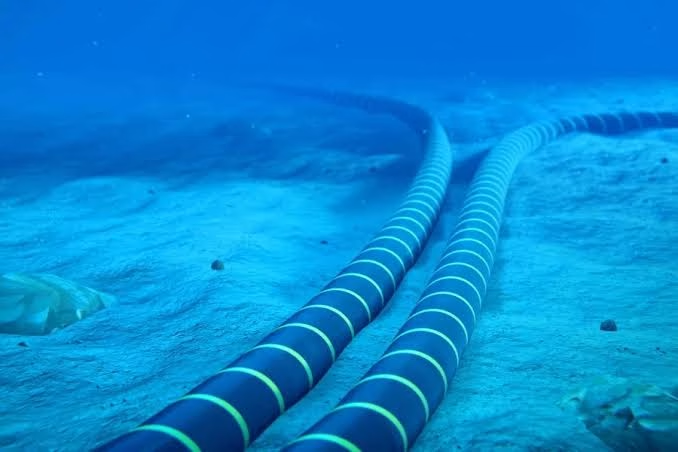Xlinks has decided to pause its application for a Development Consent Order (DCO) related to the UK-Morocco Undersea Cable Construction Project while it awaits a crucial decision from the UK government on its Contract for Difference (CfD) bid. The government made this strategic move to better align the project’s development timeline.
Furthermore the company, which is spearheading the 4,000-kilometre subsea cable project to transmit solar and wind energy from Morocco to the UK, formally submitted its request to pause the DCO process in a letter to the UK Planning Inspectorate on May 14. The DCO is a required legal approval for major infrastructure projects in the UK.
UK-Morocco Undersea Cable Construction Project Factsheet
Developer: Xlinks First Limited
Key components:
- Large-scale solar and wind farms in Morocco (Guelmim Oued Noun region).
- A massive battery storage facility in Morocco to ensure consistent power supply.
- Four parallel HVDC subsea cables transmitting power to the UK.
- Converter stations in both Morocco and the UK.
Technical specifications and capacity:
- Generation capacity (Morocco): Approximately 10.5 GW – 11.5 GW of solar and wind generation.
- Battery storage (Morocco): 22.5 GWh/5 GW.
- Transmission capacity (to UK): 3.6 GW (delivered via two 1.8 GW bipoles), providing power for an average of 19-20 hours a day.
Cable length: The subsea cable system will stretch approximately 3,800 km (2,360 miles) to 4,000 km.
The total length of wire (four cables) comes to about 10,000 miles.
Estimated cost: The project’s cost is estimated to be between £22-24 billion ($27-30 billion).
Funding: Attracted significant development funding from investors such as TAQA, TotalEnergies, Octopus Energy, GE Vernova, and AFC.
Electricity price: Xlinks is seeking a guaranteed price of £77 per megawatt-hour for solar energy and £87 for wind energy.
Also read: Xlinks Morocco-UK Power Project
Reason for the Pause
Xlinks explained that the pause allows it to wait for the outcome of its CfD bid, a government pricing mechanism designed to guarantee renewable energy developers a stable, long-term price for the electricity they generate. Additionally, the company expects a decision later this spring and is targeting a strike price between £70 and £80 per megawatt-hour—lower than many comparable renewable energy projects.
The Planning Inspectorate responded promptly, granting the pause on May 15. Sources close to the initiative clarified that this is not a cancellation or suspension, but a deliberate step to streamline project milestones.
“The aim is to ensure the review process is handled as rigorously and efficiently as possible, allowing the DCO to move forward quickly once the CfD decision is made,” said one source.
Capacity
The Morocco–UK Power Project is an ambitious undertaking that will supply 3.6 gigawatts (GW) of clean, dispatchable energy—generated through solar, wind, and battery storage—from Morocco to the UK. With an estimated cost of up to £24 billion, the project is projected to reduce UK carbon emissions by 10% and lower wholesale electricity prices by 9.3%.
The UK included the initiative in its strategic energy roadmap in 2022 and designated it as a project of national significance in 2023.
Challenges Facing the UK-Morocco Undersea Cable Construction Project
However, Xlinks has publicly voiced frustration over delays in securing formal UK government support. In a March interview with local media, Xlinks chairman Sir Dave Lewis warned that continued inaction could drive the company to relocate the project to another country. Lastly, he emphasized that the uncertainty is damaging investor confidence.

Leave a Reply